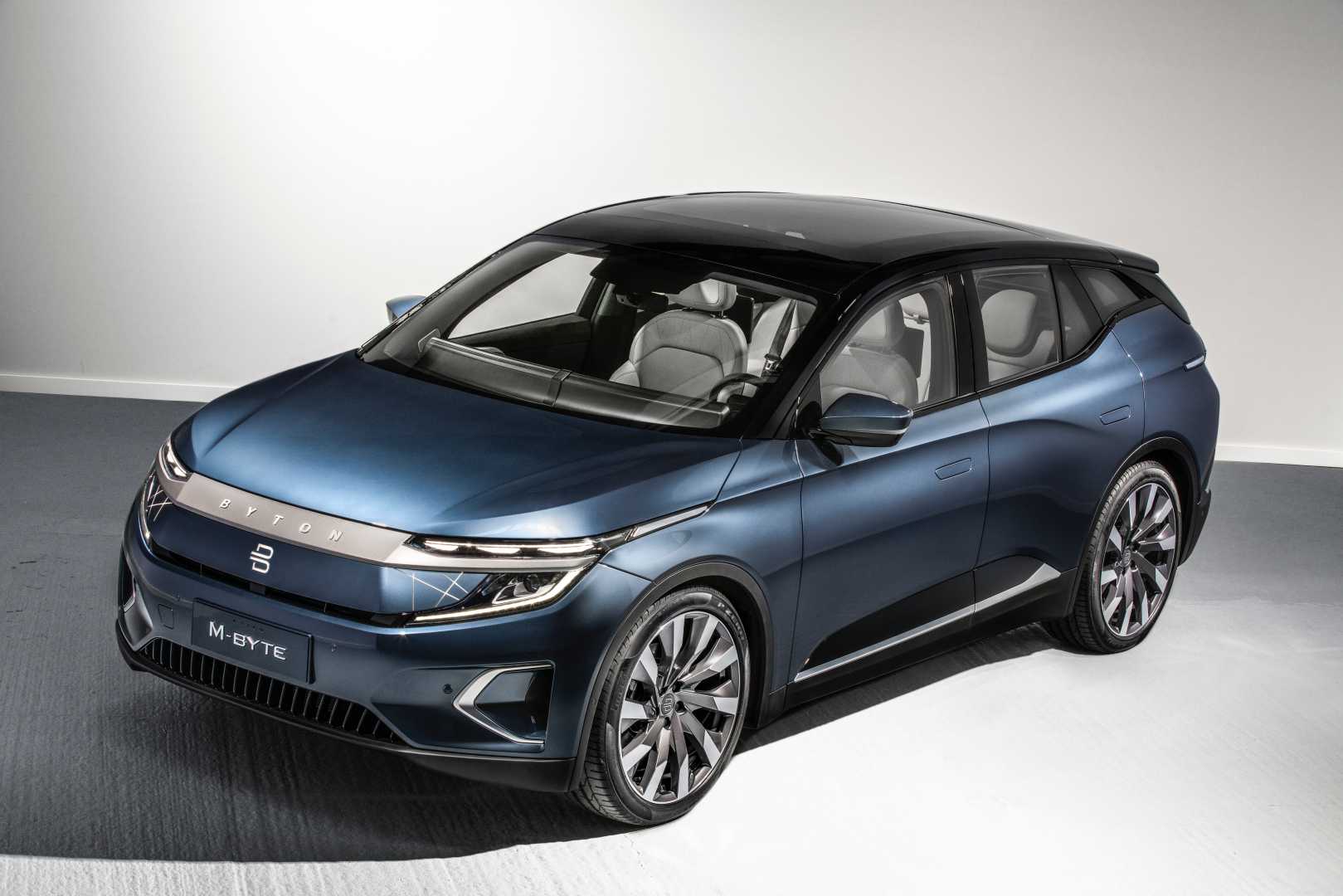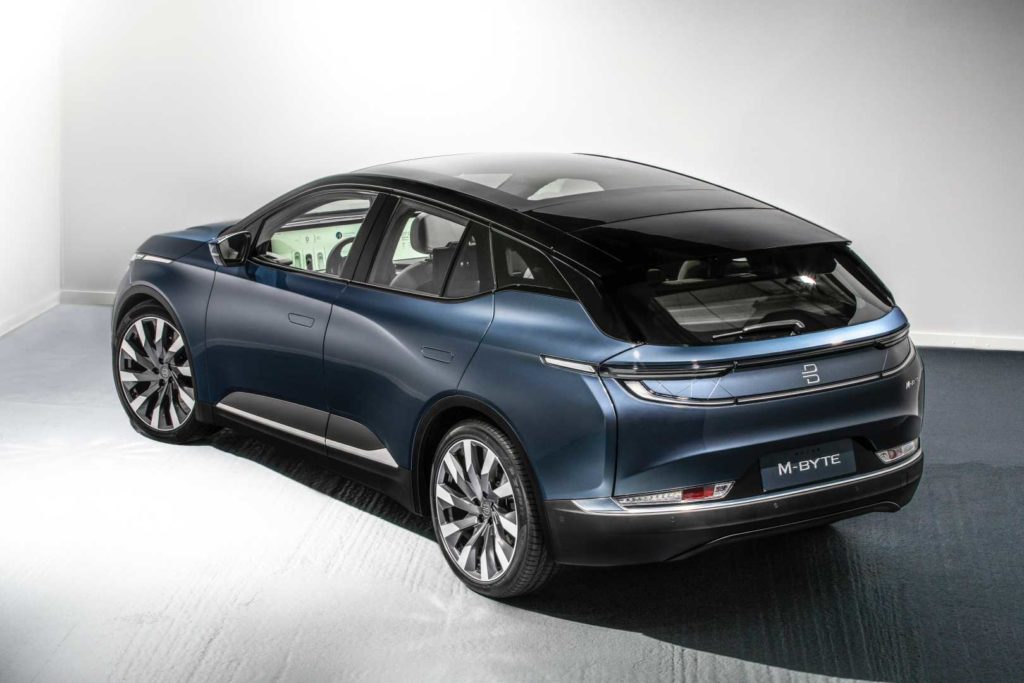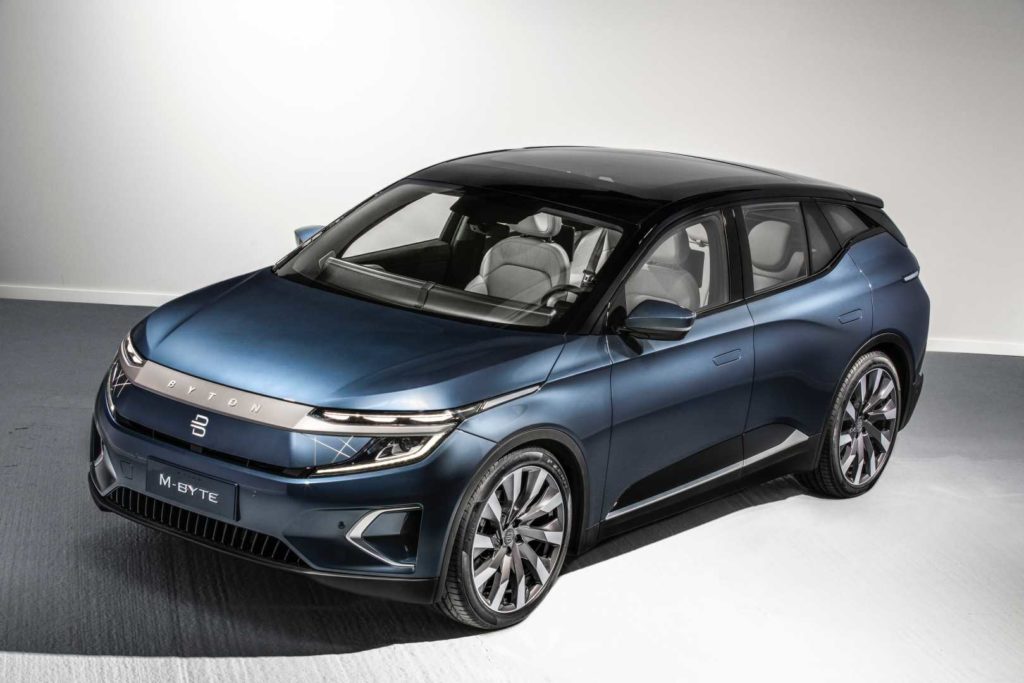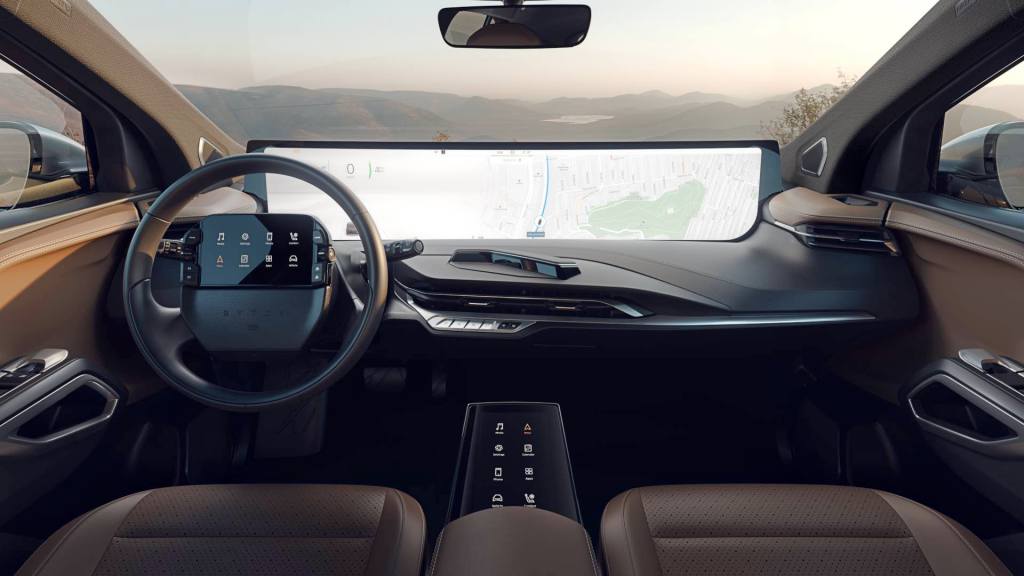Of the many electric car manufacturers that emerged in China in recent years, in the heat of state aid, only a few will survive once the authorities withdraw the subsidies and the large manufacturers fully enter the sector. Of this small handful of survivors, only certain brands such as NIO or Xpeng will achieve international projection.
Among all the startups of this type born in the Asian country, one of the most interesting is undoubtedly BYTON, created by BMW and Nissan’s former executives. In recent years, this company was immersed in developing its first model, an ambitious electric SUV called M-Byte, that was even presented at CES in Las Vegas.
This SUV was conceived with two mechanical options: one with 272 CV (200 kW), rear-wheel drive and a useful 72 kWh battery capable of giving it a range of 224 miles; and another with 408 hp (300 kW), all-wheel drive, and a 95 kWh battery with which it reached 270 miles. Regarding the load, at the time, maximum power of 22 kW in alternating and 150 kW in continuous (80% in 35 minutes) was announced.
The attractive starting price estimated by the firm completed a proposal that was characterized by its strong emphasis on technology: the vehicle had a huge 48-inch panoramic screen presiding over the dashboard, while the operating system was designed to offer video calls, weather updates, voice control, etc.
Unfortunately, the crisis derived from the COVID-19 pandemic hit the young startup hard in 2020. They suspended its operations in the middle of the year despite having spent months testing the pre-production prototypes of the M-Byte (which even passed the corresponding crash tests).
BYTON’s future has remained uncertain until now: Foxconn, the Taiwanese company tasked with making the iPhone for Apple, has signed a strategic collaboration agreement with the ill-fated Chinese startup to begin mass production M-Byte in the first quarter of 2022. Foxconn intends to invest about $ 200 million in BYTON.
Under the agreement, Foxconn will provide BYTON with its advanced manufacturing technology, operations management expertise, and supply chain resources. Considering the announced dates and the M-Byte being a finished product, it does not appear that it will use the recently introduced modular electric platform by Foxconn, which will be offered to other Chinese manufacturers.




